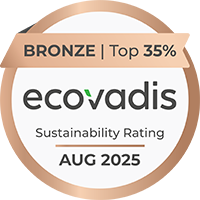Management Future’s Head of D,E& I, Shona Crooks, reflects on this contentious debate, and offers insights into the benefits of inclusion training.
There have undoubtedly been huge strides made in the pursuit of diversity, equity and inclusion. But of course, pursuit of a goal does not equal achievement. The quest for a better solution doesn’t mean it is met. Reaching for a dream doesn’t necessarily see it accomplished.
However, that does not mean giving up on the prize.
When I first started working in DE&I, the focus was very much on diversity and unconscious bias training. Everyone looked to unconscious bias training to solve DE&I, rather than see it as a piece of the puzzle. When unconscious bias didn’t work as a stand-alone activity, numerous articles emerged stating that unconscious bias training doesn’t work. I would agree.
It doesn’t work if the training is conventional bias training.
Effective unconscious bias training demonstrates bias in a way that ties it into your organisation (for example in interview/recruitment processes or as part of appraisals/360s) and in your and your colleagues’ social lives. As well as challenging stereotypes, unconscious bias conversations can also create a psychologically safer environment to have inclusive discussions, offering opportunities to get to know colleagues better, and to see what and how colleagues think and feel about bias.
Unconscious bias training provides the skills, strategies and language to challenge moments of non-inclusion by calling out or calling in behaviours.
However, this cannot be the only DE&I training you deploy. Admittedly, how, and what, your organisation does to ensure continuous training and development in this area can be more challenging. DE&I conversations will be exponentially more effective when they aren’t seen as tick box exercises, or as something companies react to because of societal pressure. This is an area where you and your organisation can be leading the way.
A recent Forbes report, showed that DE&I drives innovation (19%), better decision making, ensures people feel valued and increases bottom line profits (9%).
In addition, there needs also to be a series of opportunities to create space and develop people’s skillset and confidence.
So, what’s next for DE&I?
I consistently hear “but I just don’t have the time” or “we’re a time poor organisation”. While the feeling of or not having enough time might be true, not having enough time isn’t a reason for inaction. Increasing people’s sense of belonging can happen via small actions that you do every day, and they can have a huge impact on inclusion.
More and more people are looking to data and the intersectionality of this data to understand who is in their organisation, what colleagues need, and how to hold leaders to account.
Inclusion data is so important and will become even more so as the conversation progresses. Whether you hold people to account by KPIs, or you take a more holistic approach, you should measure the impact of what you’re doing. How else will you know if training or an activity has been impactful? You may also struggle to build an effective DE&I strategy without some form of data, helping to build a picture of current realities, clarifying potential quick wins as well as long term sustainable successes.
Social mobility and specifically, upward social mobility should absolutely be on your radar. Oxfam have just released their latest inequality report and the inequality gap is widening. This gap has a direct impact on DE&I, on who has - and gets - access to opportunities.
How can MF help?
Our DE&I team have lived experience and are extremely passionate about creating and embedding meaningful and sustainable change for individuals and organisations. We meet organisations where they are at now in their DE&I journey and share the tools to help build confidence to skilfully navigate conversations, situations and directly increase inclusion. We work with people at all levels, from discussing Inclusive Leadership, Crucial Conversations, Storytelling to Inspire, to developing DE&I strategies. Our approach is skills based, bespoke, experiential, and fun. We don’t just stop at exploring key concepts or facilitating the conversation, we give individuals the opportunity to practise these skills during the training.
Coaching is at the heart of MF and is another way to support individuals. Coaching accelerates development and helps people achieve their full potential. It’s another piece of the puzzle in helping underrepresented talent to progress and for people to belong. New parent coaching, coaching to support life transitions, all can support DE&I.
DE&I isn’t something that only HR and Learning and Development are responsible for, everyone is responsible for DE&I.







